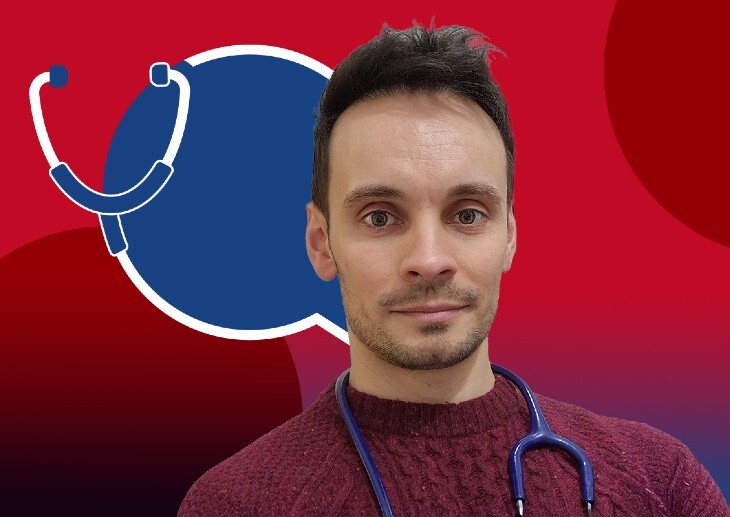The 10 year health plan for England provides a vision for a sustainable NHS able to meet the growing needs of our population within fixed resources, setting out the need for three shifts in the way care is delivered – toward widespread adoption of digital and technology, earlier detection and prevention of illness, and a greater focus on community and neighbourhoods. This vision can only be achieved through new ways of working including a greater role for innovation and partnership with life sciences to deliver genuine collaboration and to support wider economic growth for the UK.
Solutions – whether medicines, diagnostics, digital tools or clinical trials – need to be targeted where they will have greatest impact and, as a health system, we need to be ready to embrace and implement innovation.
Traditionally the NHS has been cautious about working with life science organisations and relationships are often sporadic or managed through intermediaries. With this new drive for collaboration, however, we need to start looking at better ways to work together, drawing on the NHS’s considerable experience of effective partnership working.
Building relationships
Effective partnerships require transparency, alignment of goals and an understanding of each other. There is value to be gained in recognising what motivates and challenges life sciences organisations if we are to maximise the industry’s benefits for healthcare and the wider economy. In our work with the sector, the main pain points they experience are:
- Understanding variation in uptake of medicines, devices or other products – in particular the barriers that prevent NICE-approved medications being adopted consistently for populations where there is a perceived benefit.
- Inconsistent implementation of new innovations, some of which could significantly change current practice and deliver value.
- Understanding how to navigate the NHS – who to approach and how decisions are made.
Marrying these issues with the challenges faced within the NHS could fast track solutions that benefit both sectors. That could mean being clearer about the challenges each region is prioritising and therefore enabling industry to be part of co-designing solutions; enabling greater access to data for research, development and targeting of therapies; or being open about the wider enablers needed to successfully implement changes to care and co-creating methods for faster adoption.
Health Innovation Networks already play a key role in developing relationships with industry and academia, particularly in opening possibilities for specialist innovators to access NHS opportunities. Trusts, ICBs and other health organisations now need to work with and build on these networks, identifying opportunities to deepen relationships that will enable the 10 year health plan’s ambitions to be realised.
Notwithstanding the commercial aspects, there is often strong alignment between the values and purpose across both sectors. Some incentives may differ but ultimately health and life sciences organisations are working towards the same goal – better outcomes for patients and more efficient, sustainable care pathways.
Data-led innovation
The NHS is highly experienced in using data to derive insight and intelligence on variation in access to care as well as variation in delivery, cost and quality of that care. This helps to identify what changes are needed and where, which can inform the innovations companies prioritise. Whether the incentive is commercial or societal, it’s beneficial to the NHS and patients if organisations developing the drugs, devices and solutions for tomorrow focus on areas of highest need. The advanced health economics and data modelling techniques now widely used to support innovation within the NHS could help shape, test, target and refine emerging innovations, leading to better targeting for clinical trials and quicker, more cost-efficient treatments.
In some cases, engaging suppliers in discussions could lead to collaborative solutions to address operational challenges such as variation in uptake. Clearly, commercial realities come into play here. When it comes to emerging research or technology, where intellectual property is key, collaboration between competing organisations may be impossible. But early conversations about the art of the possible in addressing broad challenges could be feasible with the right agreements in place. The NHS has a long track record of successful collaboration and knowledge-sharing – a practice we should look to export to other industries where we can.
Enabling implementation
An introduction of a new therapy often prompts ripples of change across a care pathway or entire organisation, sometimes multiple organisations, which can cause friction or be held back by resource pressures, shifts in resources between organisations, workforce and skills gaps or other challenges. Some will be game changers, but they don’t come out of nowhere. The approval process will involve several stringent steps, making it even more frustrating when approved innovations fail to reach patients consistently. How can we use that lead period to anticipate and consider the operating model and deployment needs ahead of time?
Sharing information early on can help the NHS plan where in the health system the innovation will sit, what companion innovations may be implemented alongside, such as new devices or diagnostics, how that will impact the workforce and what is needed to support a smooth transition. Part of this is how we help our workforce become horizon ready – able to visualise what our health services could look like in five- or ten-years’ time and what we might need in place to respond to changing needs.
Life science organisations often share risk, which can include paying for dedicated resources to support the successful introduction of new ways of working. Though welcome, exploring more sophisticated ways of sharing risk could support a deeper understanding of the day-to-day pressures and realities of the operational environment, leading to better implementation planning.
Navigating new relationships
Working with industry is not new for the NHS. In addition to the expertise offered by the Health Innovation Networks, there is plenty of guidance available from NHS Confederation and the Association of the British Pharmaceutical Industry, including advice on managing conflict of interest. This clarity can help avoid unnecessary barriers to partnership working while ensuring appropriate measures are in place to safeguard the public purse.
We’re already seeing an increasing desire among life science organisations to understand the NHS better and build more direct relationships. For example, we recently trained pharmaceutical company, Boehringer Ingelheim, on the changes to specialised commissioning, so they can navigate the complexities of the new delegated arrangements. But in the health sector, we also need to be ready to understand the processes, motivations and challenges of the life science sector and adapt our ways of working to improve uptake of innovations.
Not surprisingly, leadership and culture are crucial here. If we want commissioners and providers to prioritise better partnership working with life sciences, NHS leaders will need to lay the groundwork for more open collaboration. Teams will need to be supported through change and understand what’s in it for them as well as how it will improve patient experience. This is not easy against the backdrop of significant pressure and change. But it could be key to achieving a more sustainable, innovative health service and thriving life sciences sector in the UK.
Alison Tonge, is executive director of strategy, innovation and planning at NHS Arden & GEM CSU and lead director for the NHS Life Science Hub




